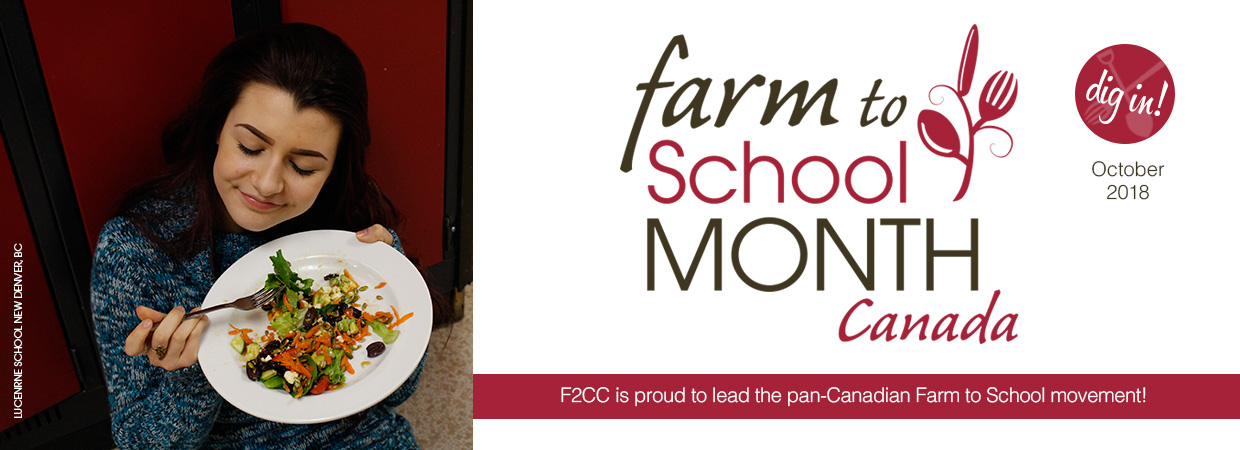


L’Étang-du-Nord, Québec
Je suis emballée par les activités de culture et de cuisine d’aliments locaux au cégep parce que je trouve que ça permet une multitude de retombées positives chez les jeunes: développement de l’autonomie alimentaire, saines habitudes de vie, dynamise le milieu de vie, permet de créer des liens avec divers acteurs de milieu, etc.
Crédit photo : Josiane Bergeron
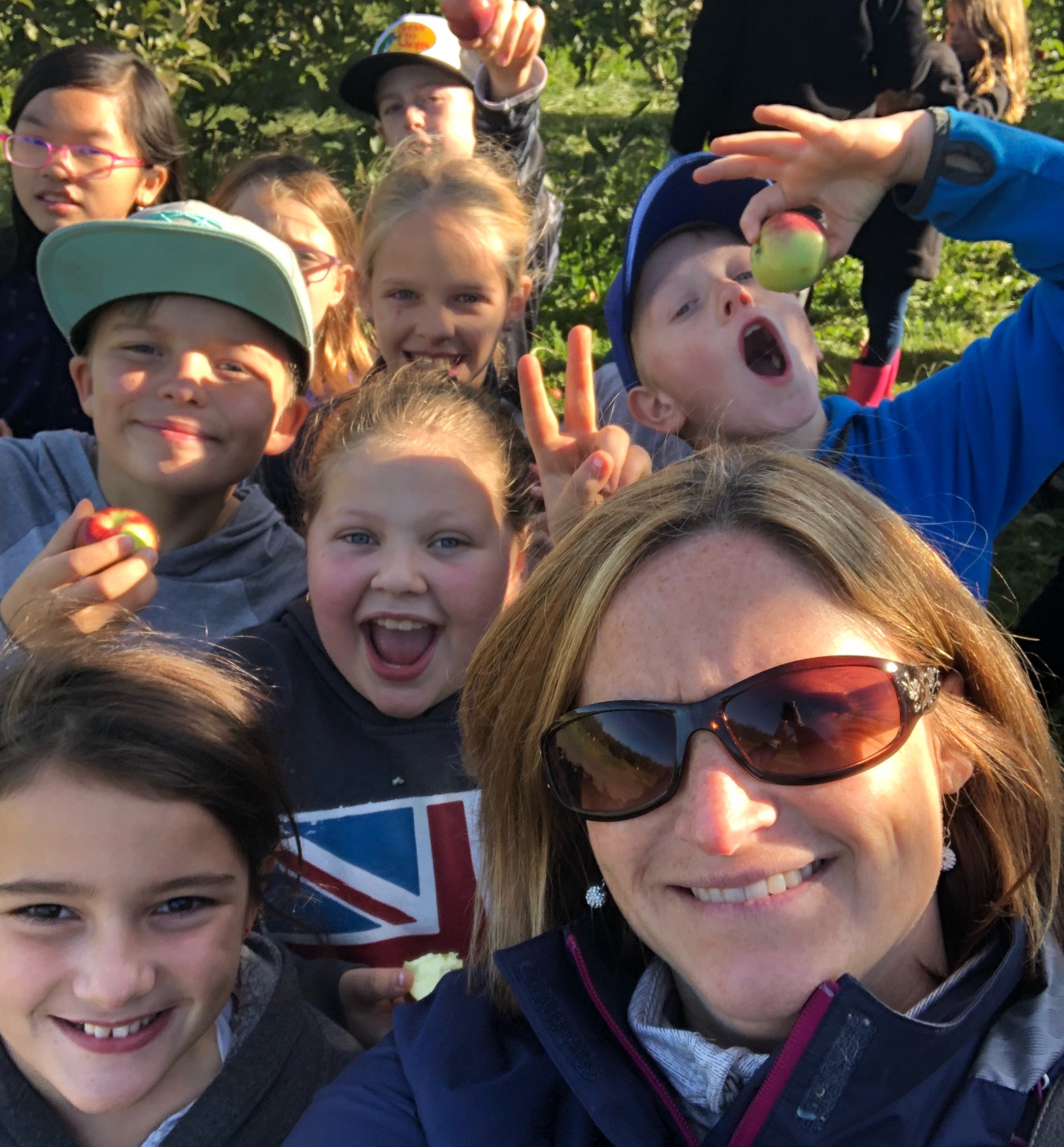
Fredericton, New Brunswick
This gives our students a wonderful opportunity to visit local farmers, see their work, and value in producing food for our local community.
Photo Credit: Cynthia Burnett
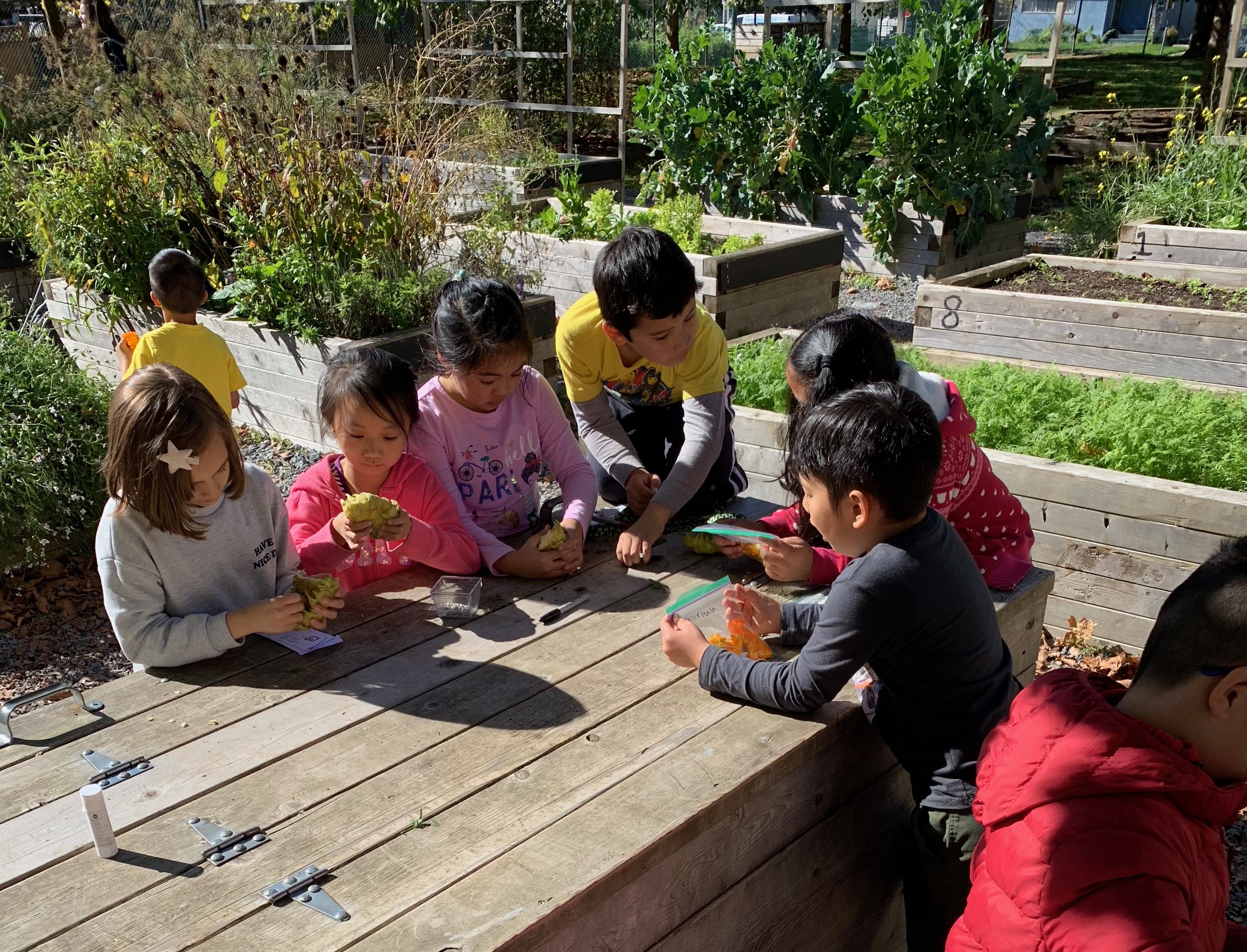
Vancouver, British Columbia
It is wonderful to see the students outside and connecting with nature. They are learning where their food comes from and enjoy tasting fresh food from the school garden. This month we have been harvesting herbs and collecting seeds to use for the garden next season and to sell as a fundraiser.
Photo Credit: Valeria Kao
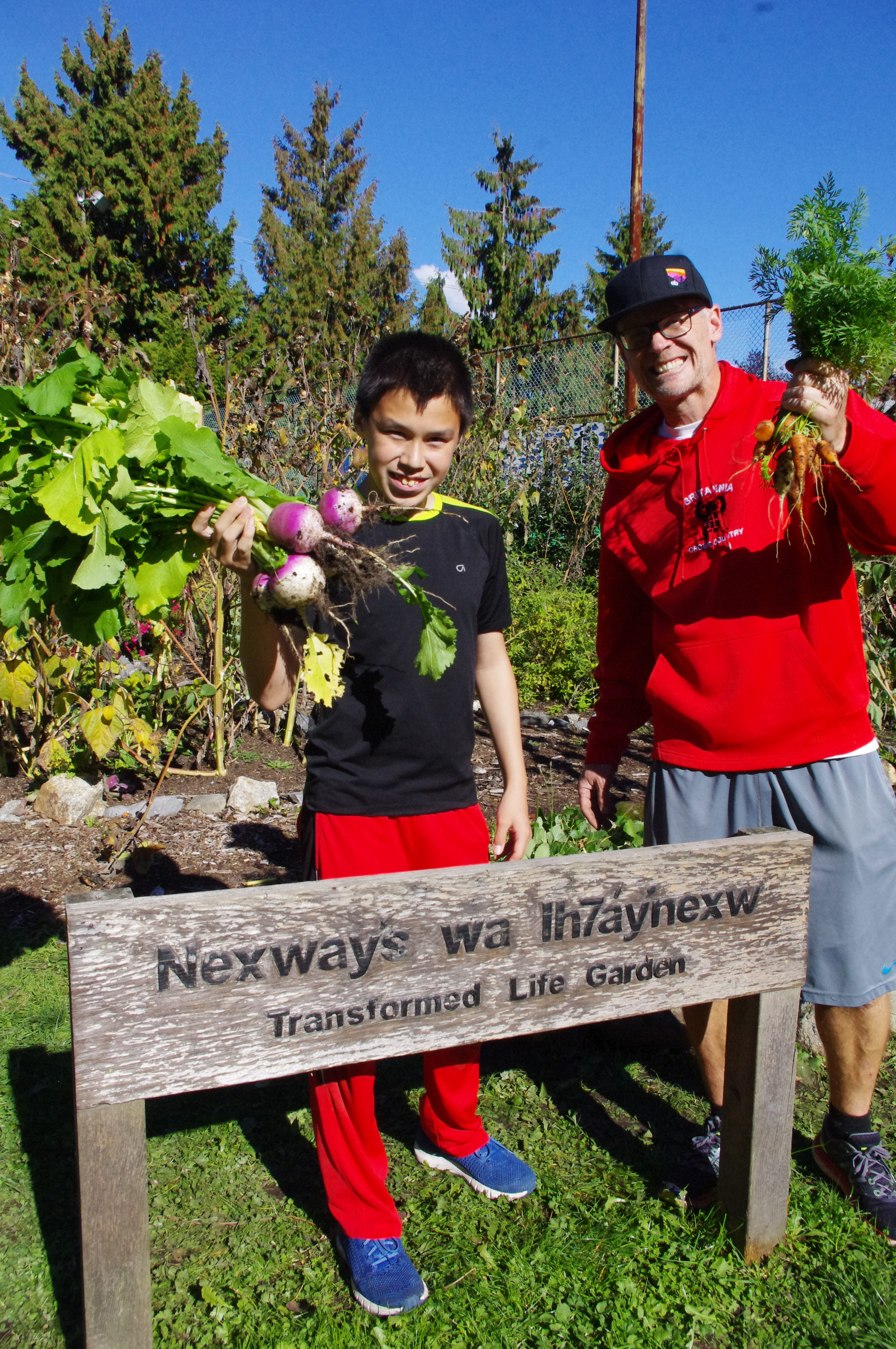
Vancouver, British Columbia
I am excited by the many hands-on teaching opportunities that garden provide to learn about ecology, food growing, nutrition, and environmental leadership.
Photo Credit: Ian Marcuse
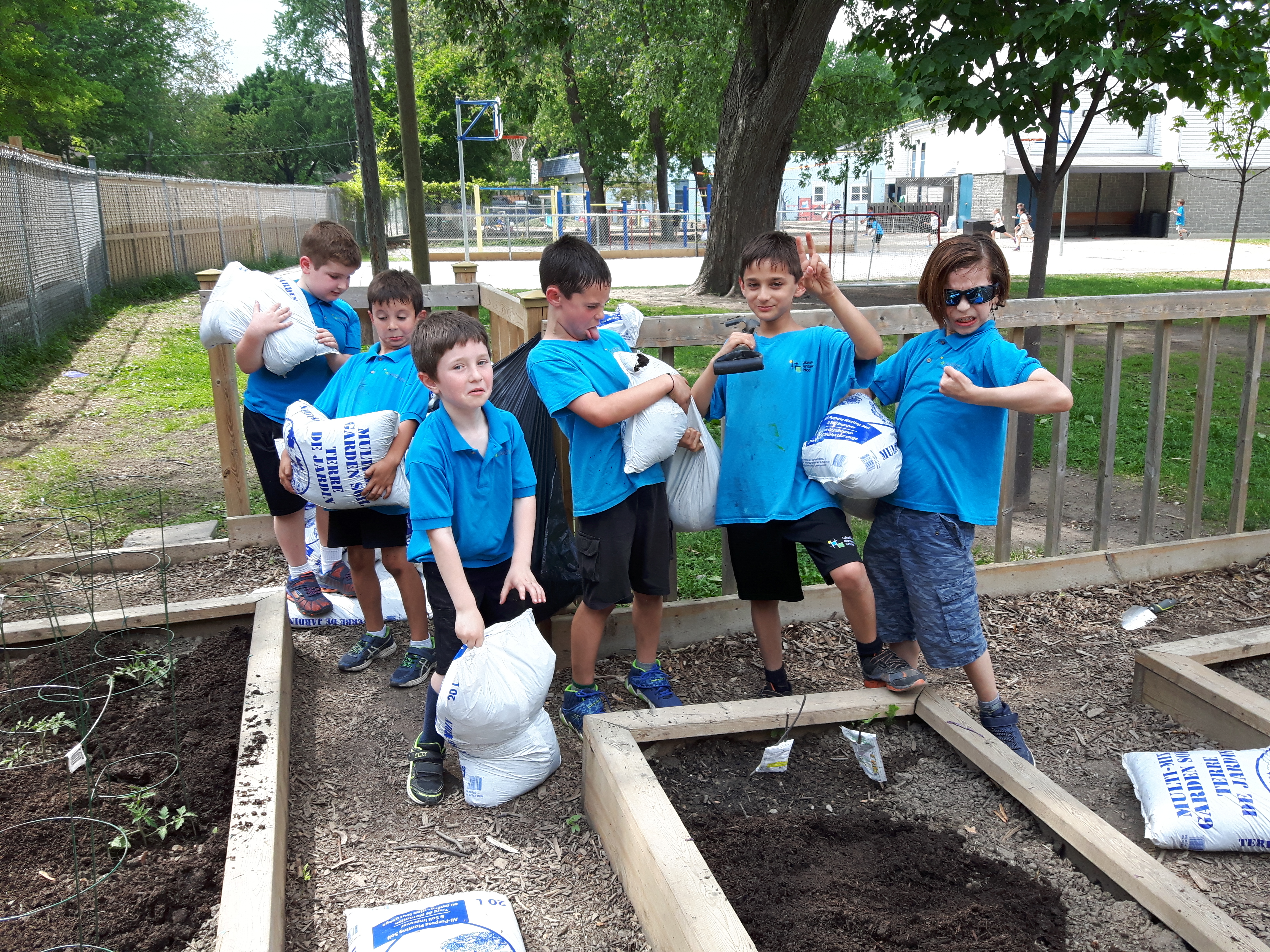
Tecumseh, ON
We have our own school garden for a few years now. We are excited about growing our own vegetables and herbs and to be able to contribute them to our school kitchen. We are exited to be able to learn about real healthy food, to watch it and help it grow!
Photo Credit: Magda Swisterski
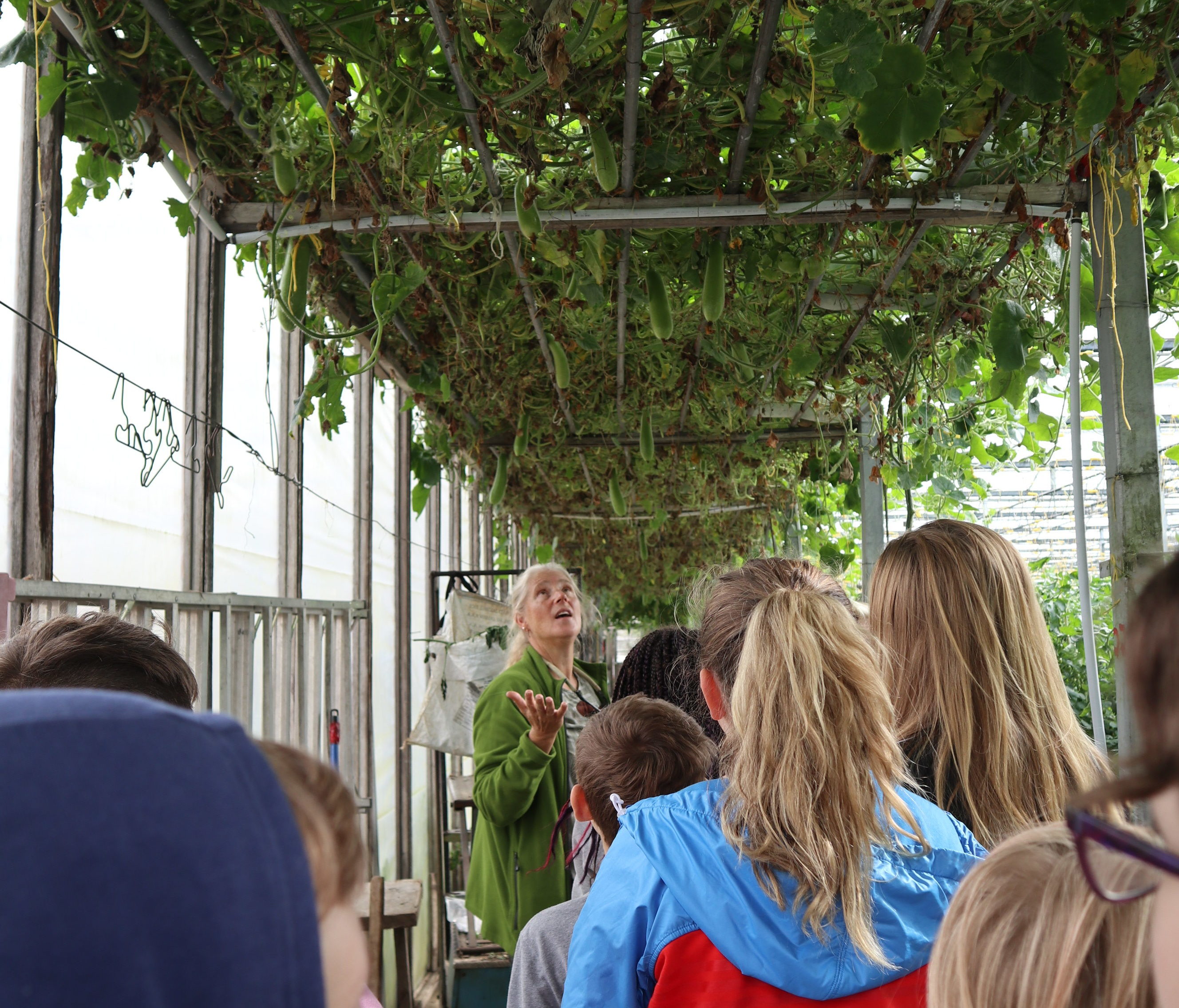
Victoria, British Columbia
Love having students get excited about eating right out of our school learning garden! It is really cool when they try something for the first time and really enjoy it and then tell other kids.
Photo Credit: Leslie Roberts

Granby, Québec
Pour que le plus d’élèves aient des cours de cuisine afin d’augmenter les saines habitudes de vie, qu’ils aient un contact avec la production de légumes en serre afin de voir les bienfaits économiques de faire un jardin à la maison puisque le coût de l’épicerie augmente d’année en année. Les élèves suivant les cours de cuisine, présentement 75 élèves, apprennent à travailler en équipe, à avoir une bonne organisation, à voir l’utilité des matières académiques (lire une recette, mesurer les ingrédients,…), sont heureux de réaliser des travaux manuels (parce qu’ils sont souvent en contexte d’apprentissage statique).
Crédit Photo : Karine Desmarais
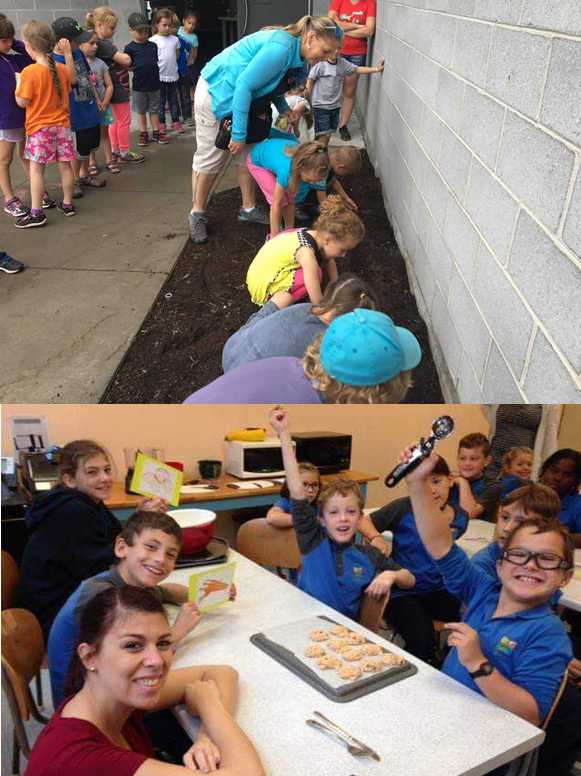
Louiseville, Québec
Tout d’abord, grâce à ce projet, les élèves développent considérablement leur esprit de collaboration en travaillant en équipe dans l’étape de la plantation ainsi que pour l’étape de la cuisine collective.
Également, cela permet aux élèves de comprendre réellement la provenance des aliments qu’ils mangent et d’apprendre les bases du jardinage, ce qui favorise l’émergence de compétences citoyennes comme par exemple, avoir un jardin ou participer à un jardin communautaire lorsqu’ils seront rendus à l’âge adulte.
Crédit Photo : Cellulaire personnel
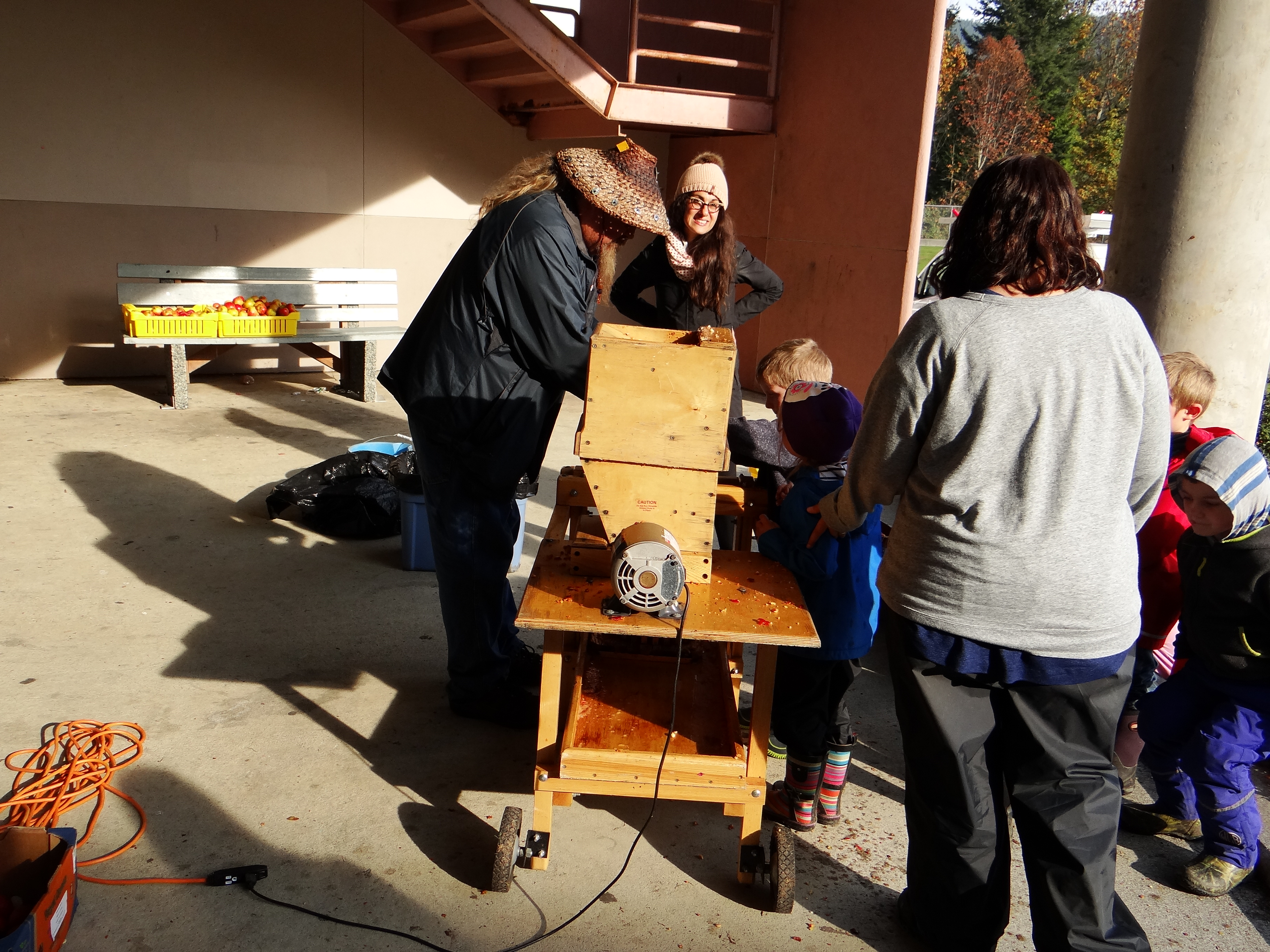
Sooke, British Columbia
Farm and Food Focused learning activities grow student food literacy and security in exciting, meaningful, and engaging ways!
Photo Credit: EMCS Yearbook Class c/o Emily Lutz
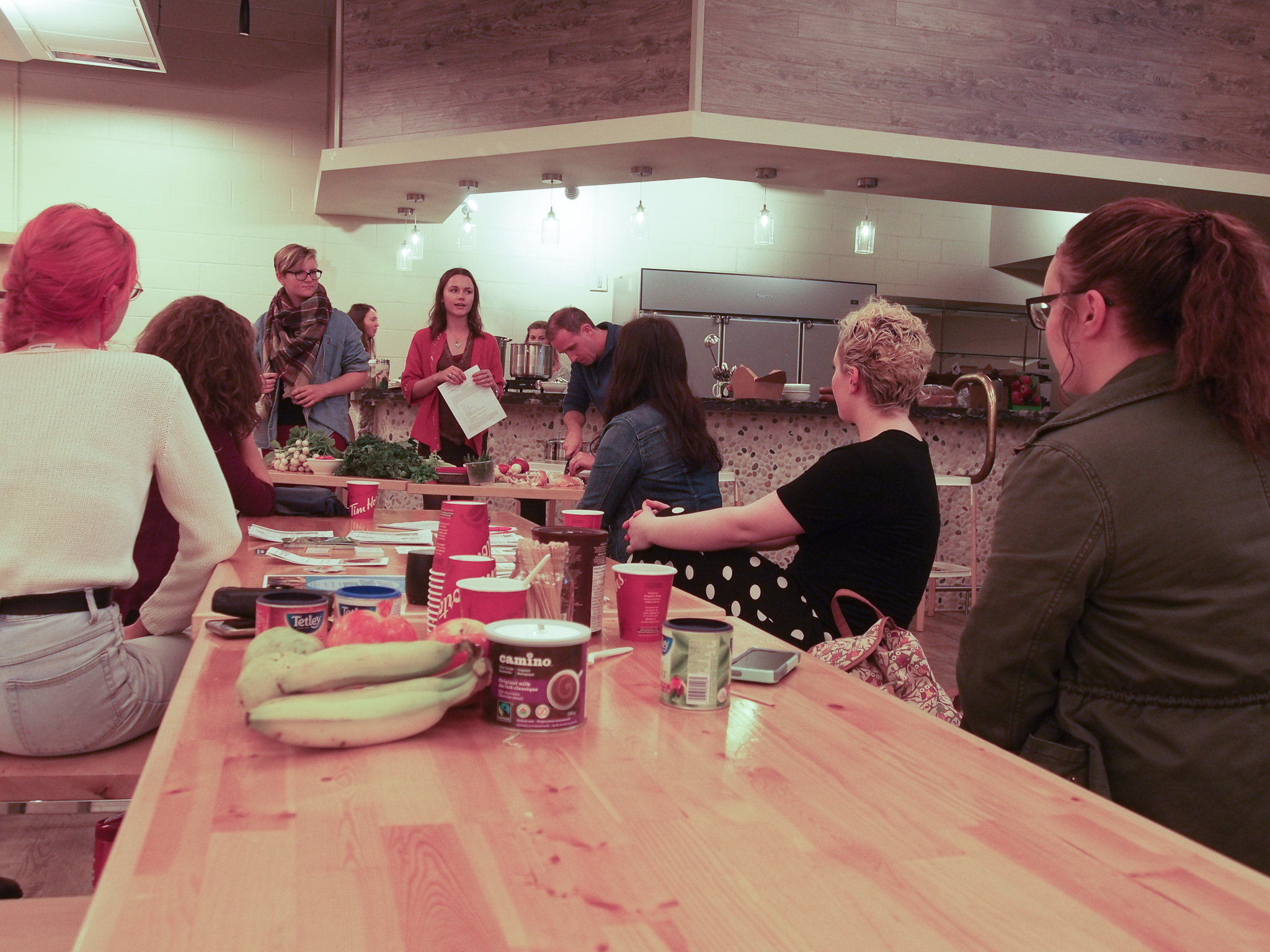
Victoria, British Columbia
I am excited that we were able to share and learn to cook delicious community-based foods, have a great discussion and inspire each other to become more active in our community. The funds would be used to continue these workshops in perpetuity.
Photo Credit: Megan Chan – Community Cabbage
Central Kootenay, British Columbia
Bringing fresh food into the school demonstates the ease of prepping, serving and eating nutritious food. Local and litterless are also benefits. Students love growing and making food at school.
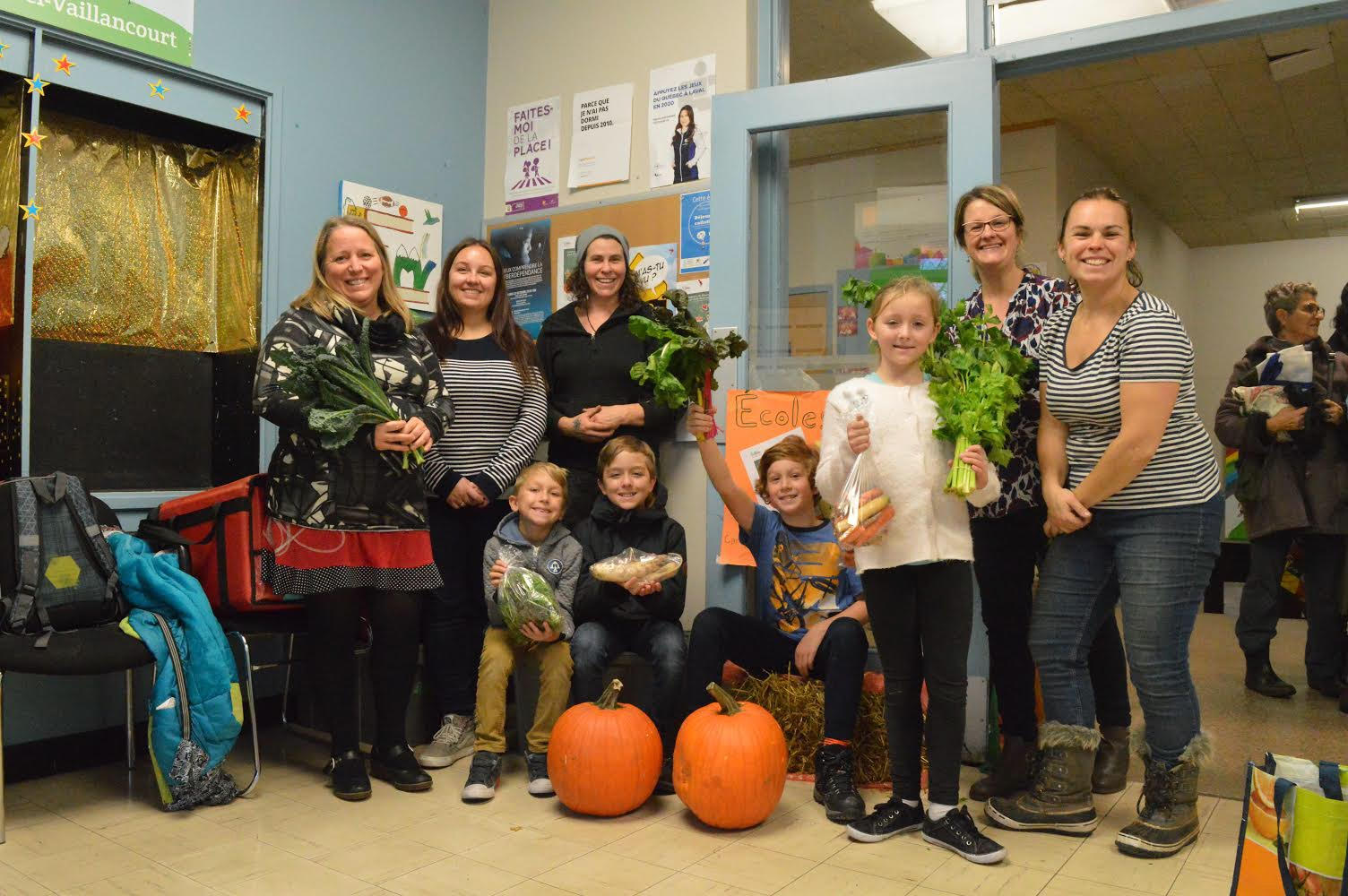
Laval, Québec
Parce que nous croyons que les habitudes d’alimentation saine et la conscientisation à l’environnement et au travail des fermiers qui pratique une agriculture durable, ça débute dès le primaire. Nous voulions donc prendre l’occasion d’exposer les familles au concept de fermier de famille. Et l’activité de concert avec Équiterre via le programme Écoles enracinées a été une occasion en or dans laquelle toute l’école (conseil d’établissement , personnel, familles ) s’est mobilisée. Le service de garde préparera aussi certaines recettes avec un ou deux paniers réservés afin d’exposer le plus grand nombre d’élèves à la façon dont pousse les légumes. Nous ferons aussi des ateliers ou de l’éducation lors de la remise des paniers avec notre fermier attitré.
Crédit photo : Mélanie Blais
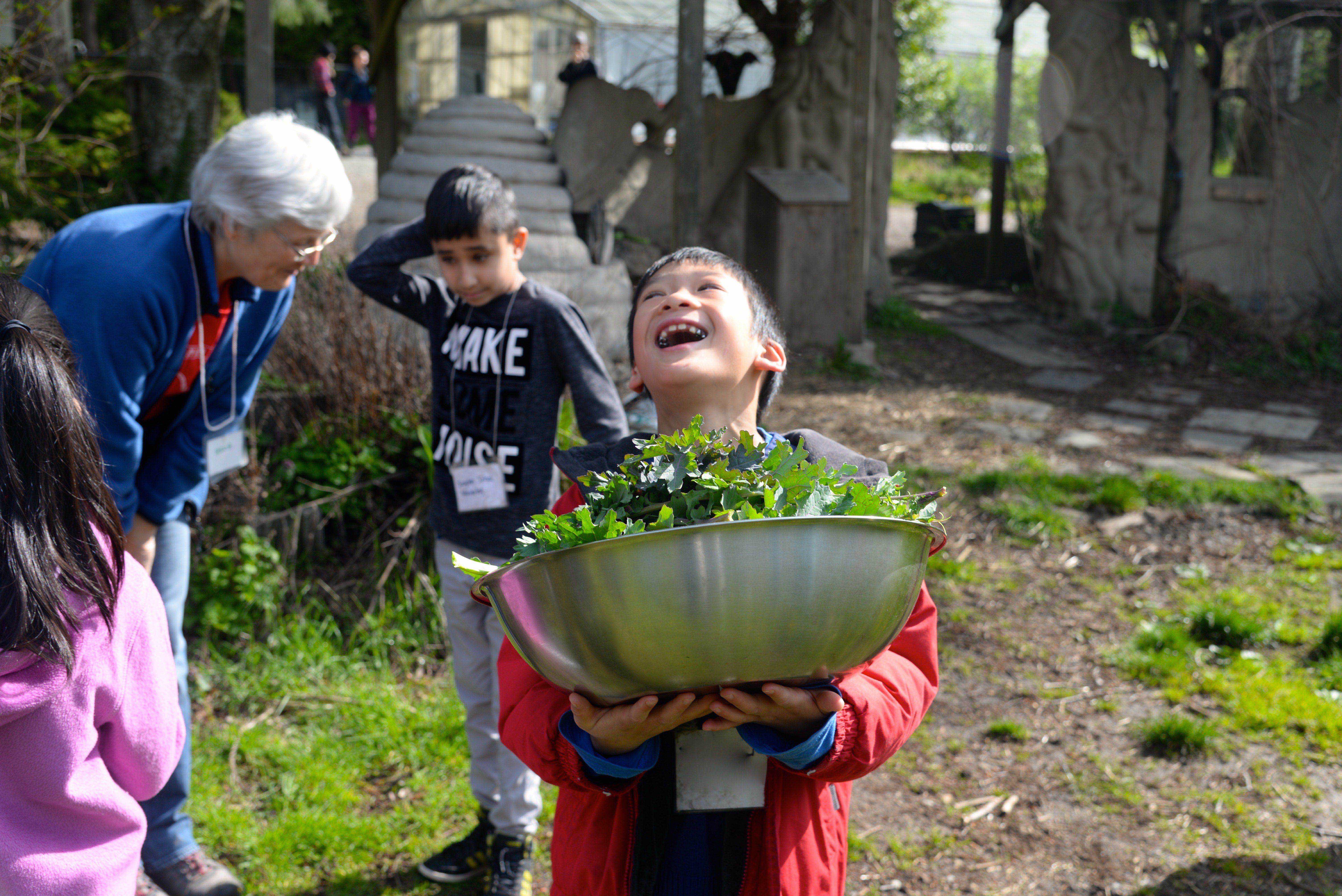
Vancouver, British Columbia
I love when children really “get” where their food comes from and that they can make delicious and nutritious food for themselves, their friends, and their loved ones. Growing their own food, harvesting their bounty, transforming it into a dish they love (like kale sushi!), and then sharing and eating beautiful food is so rewarding and empowering for children and for those who witness their joy and empowerment through every step of this process.
Photo Credit: Trista Yuan

Sainte-Christine-d’Auvergne, Québec
J’ai une garderie sur une fermette et kiosque pour produits locaux et cuisine de transformation de nos produits. J’adore apprendre aux enfants à jardiner et cuisiner et prendre soin de nos animaux.
Crédit Photo : Kiosque préparé par les enfants
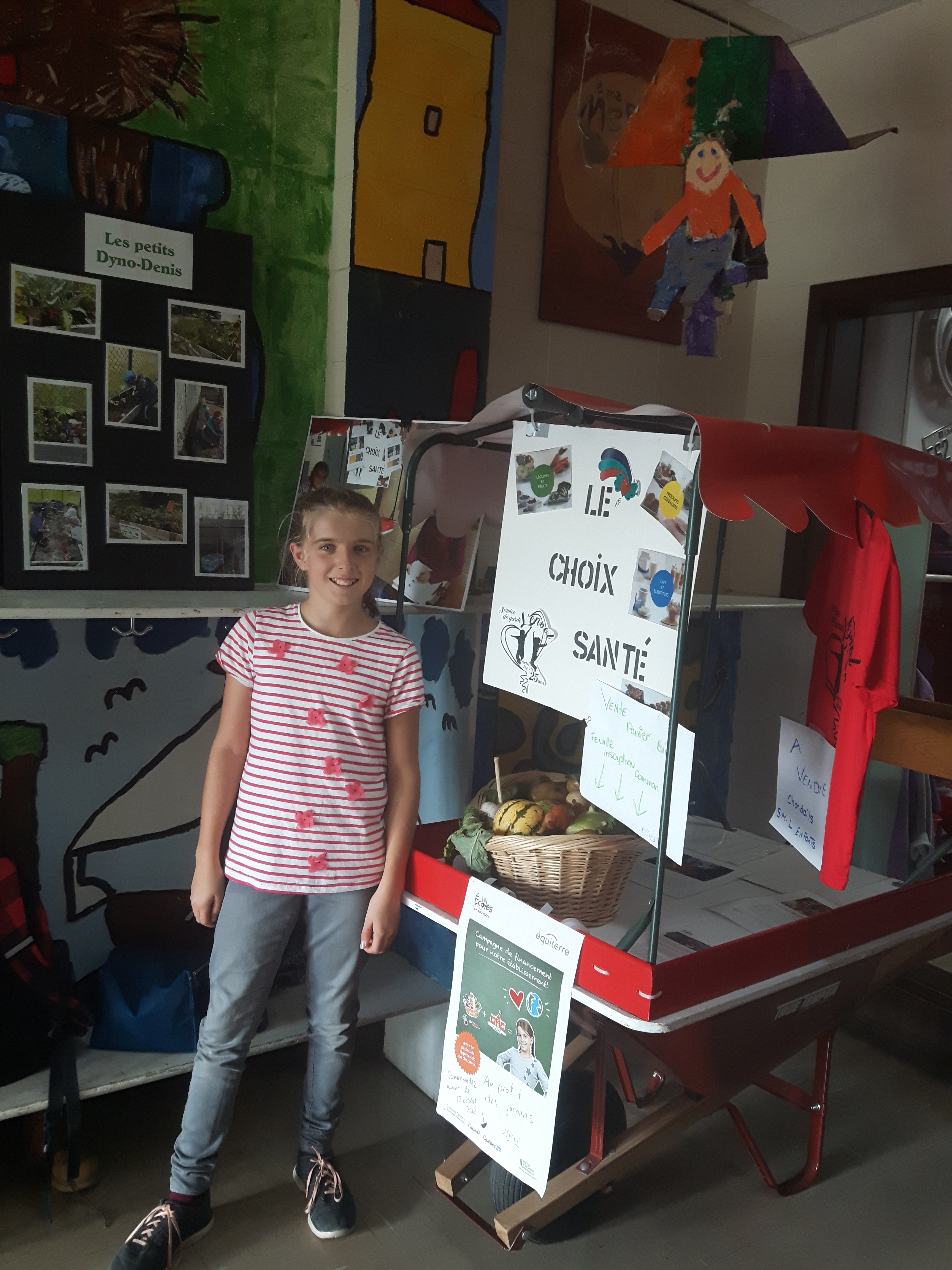
St-Denis sur le Richelieu, Québec
Faire découvrir des produits frais d’une ferme bio, Bien-manger, ramasser des sous pour notre jardin communautaire. Cuisiner des collations santés.
Crédit Photo : Josée Monette
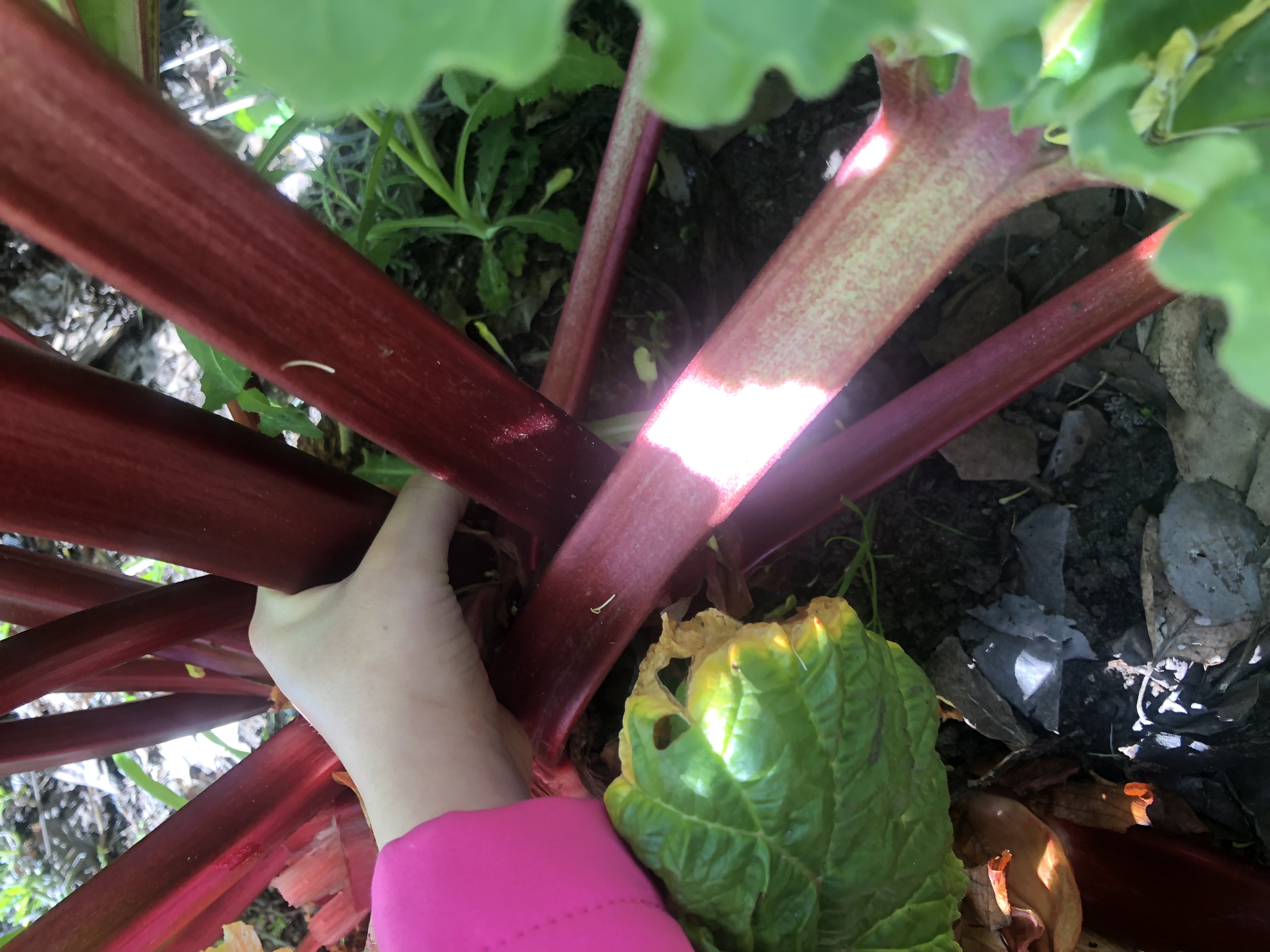
Richmond, British Columbia
We are inspired by the meaningful and transformative learning that is possible in our garden classroom! The joyful learning our students demonstrate is a wonderful reflection of the cross curricular learning that can be experienced in a school garden.
Photo Credit: Megan Zeni
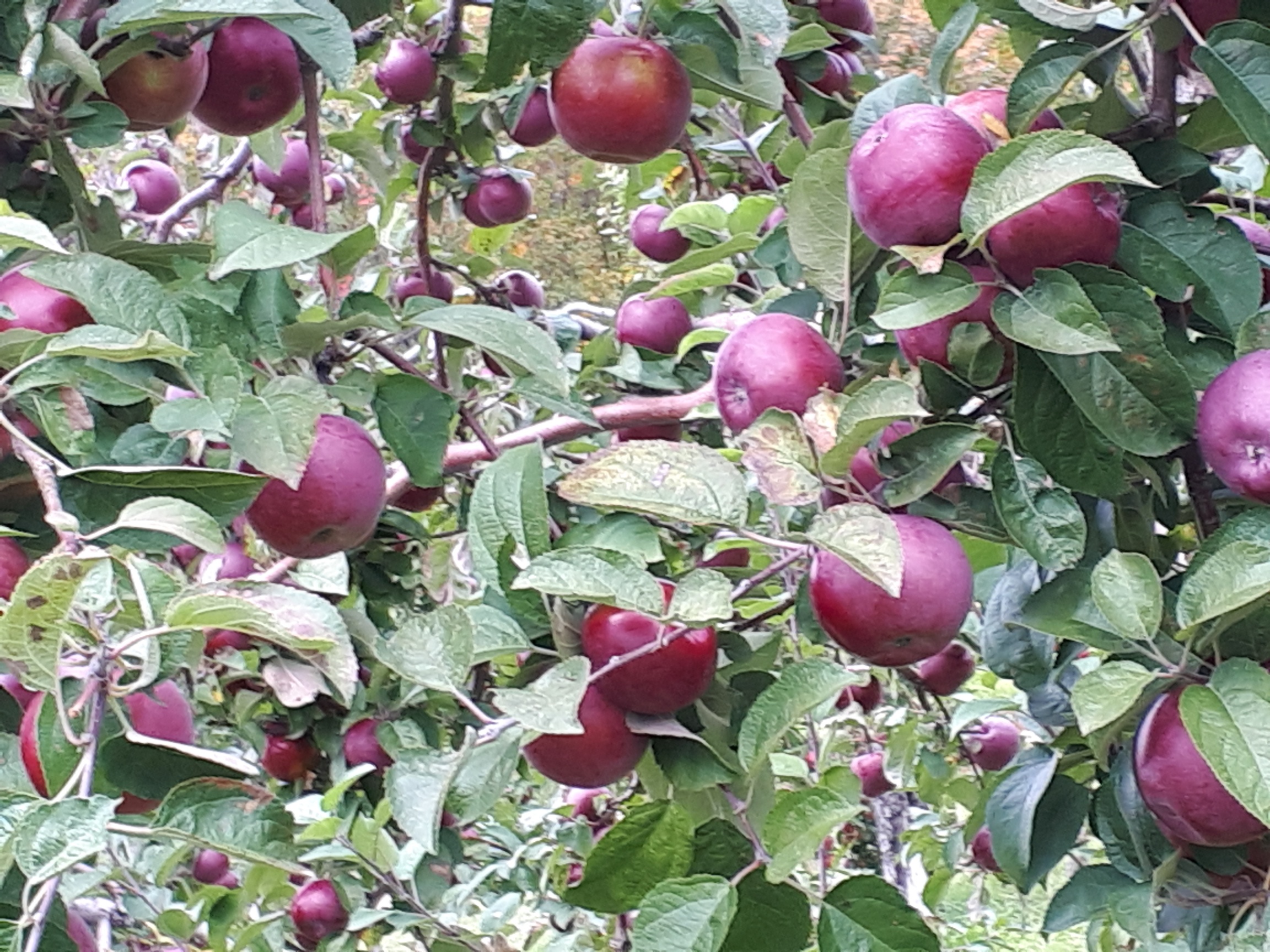
Montréal, Québec
Cela fait partie de l`éducation de savoir d’où viennent les légumes, fruits et aliments que nous consommons surtout avec des enfants de la ville, qui ont rarement ou jamais le chance d`aller en campagne.
Crédit Photo : FICHIER PHOTOS

Kinkora, Prince Edward Island
Our students are involved in many aspect of farm to table through the Agriculture Program, the Culinary classes and the foods that are offered in the cafeteria. I love that our students try new foods because they are aware of the connections to their community and that a lot of it is made “from scratch”. It encourages our students to take more risks in their food consumption.
Photo Credit: Amanda Kingman

Montréal, Québec
Montrer aux enfants la nature et d’où vient la nourriture qu’on manges et les sensibiliser l à la diversité alimentaire.
Crédit Photo : vidéo phot
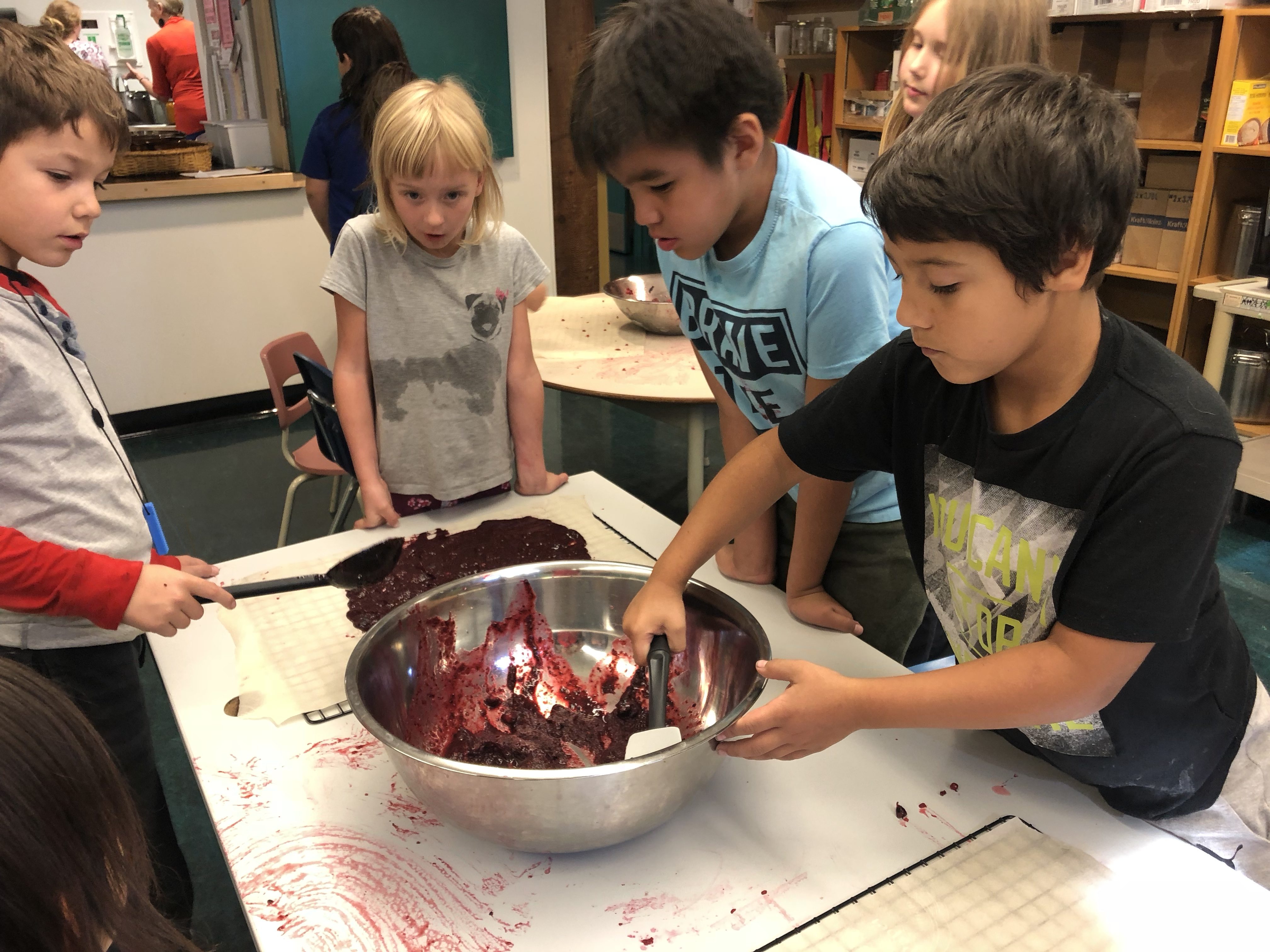
Skeena-Queen Charlotte D, British Columbia
Excited for all the students diggin in and sharing wonderful local food in the school. It does take a village to raise a child, we are doing it in school, onenplate at a time.
Photo Credit: Sian Nalleweg
Laval, Québec
Parce que nous croyons que les habitudes d’alimentation saine et la conscientisation à l’environnement et au travail des fermiers qui pratique une agriculture durable, ça débute dès le primaire. Nous voulions donc prendre l’occasion d’exposer les familles au concept de fermier de famille. Et l’activité de concert avec Équiterre via le programme Écoles enracinées a été une occasion en or dans laquelle toute l’école (conseil d’établissement , personnel, familles ) s’est mobilisée. Le service de garde préparera aussi certaines recettes avec un ou deux paniers réservés afin d’exposer le plus grand nombre d’élèves à la façon dont pousse les légumes. Nous ferons aussi des ateliers ou de l’éducation lors de la remise des paniers avec notre fermier attitré.
Crédit Photo : facebook. Nous aurons davantage de photos lors de notre fête avec le fermier le 6 novembre.
ecole-marcel-naillancourt_qc_facebook
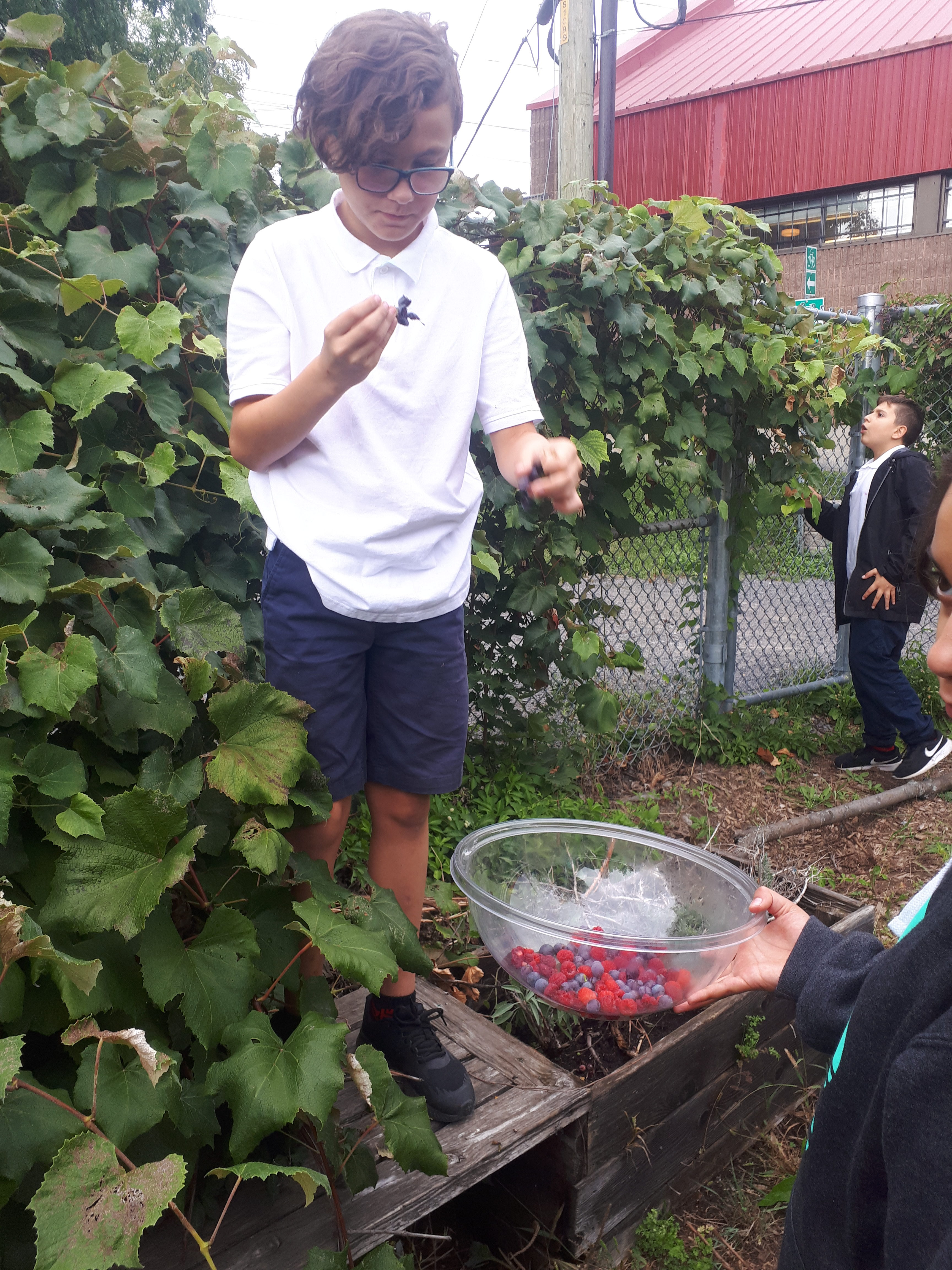
Saint-Léonard, Quebec
Teaching kids about healthy eating and environmental protection so they can better serve their generation and future generations.
Photo Credit: Shannon Holton
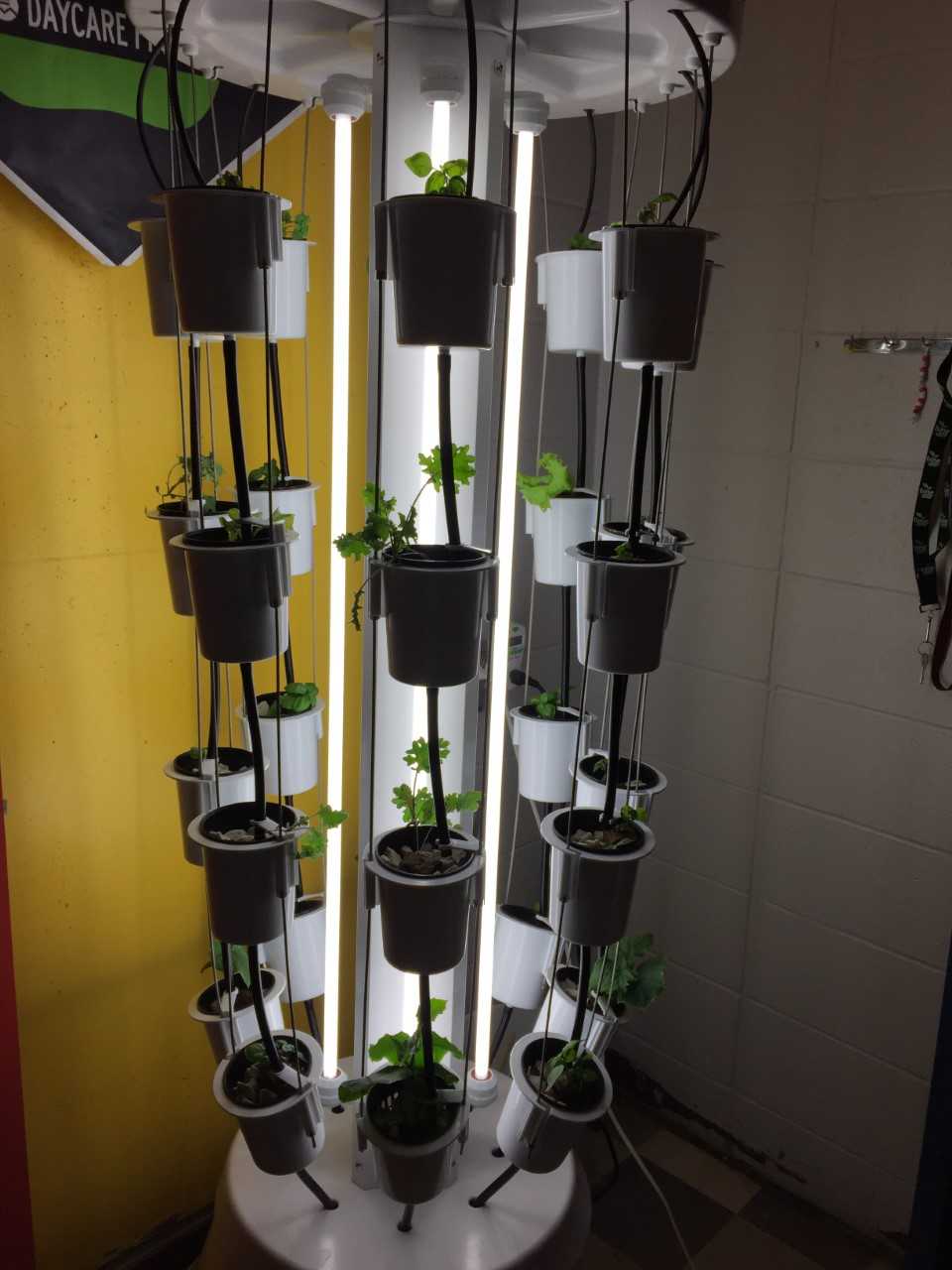
Montréal, Quebec
Teaching students that there are multiple ways to provide local and sustainable options with an indoor hydroponic system.
Photo Credit: Sandra Pertrillo
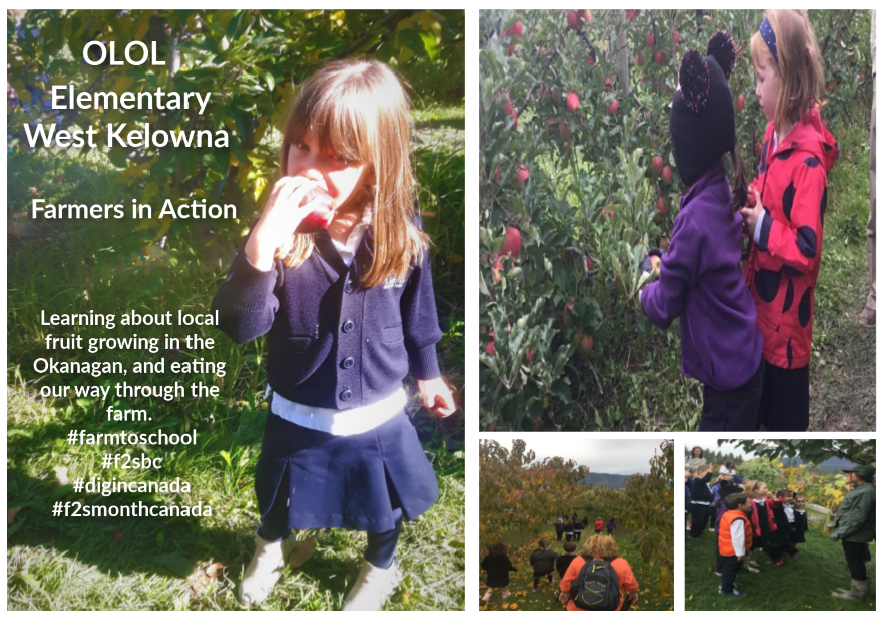
West Kelowna, British Columbia
We are excited by local food because it is so close to us, down the road at the community garden and two blocks over at the local farm and fruit market. Every child has a story about farms and food, and its inspiring to hear their interpretations of how food is grown and consumed.
Photo Credit: Kirsten Kurjata, Shelley Brodeur
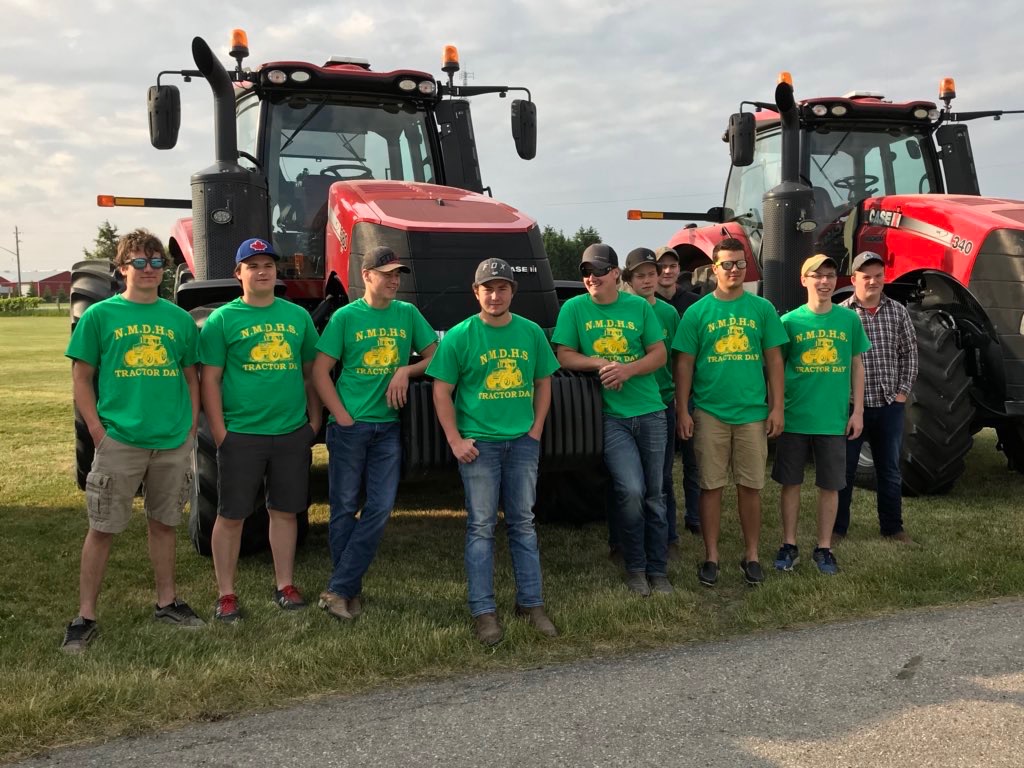
Parkhill, Ontario
We are taking our high schol teachers on a local tour of 5 farms: poultry, grain, dairy, hog, wind/solar & a farming GPS company. All these farms are located in our Middlesex community. It will be a great learning experience for our teachers as they will learn about student pathways, food production, community industry and how technology / 21st century skills are changing the farming industry. Our date for this initiative is on October 26, 2018 during a PD day.
Photo Credit: Matt Bradacs
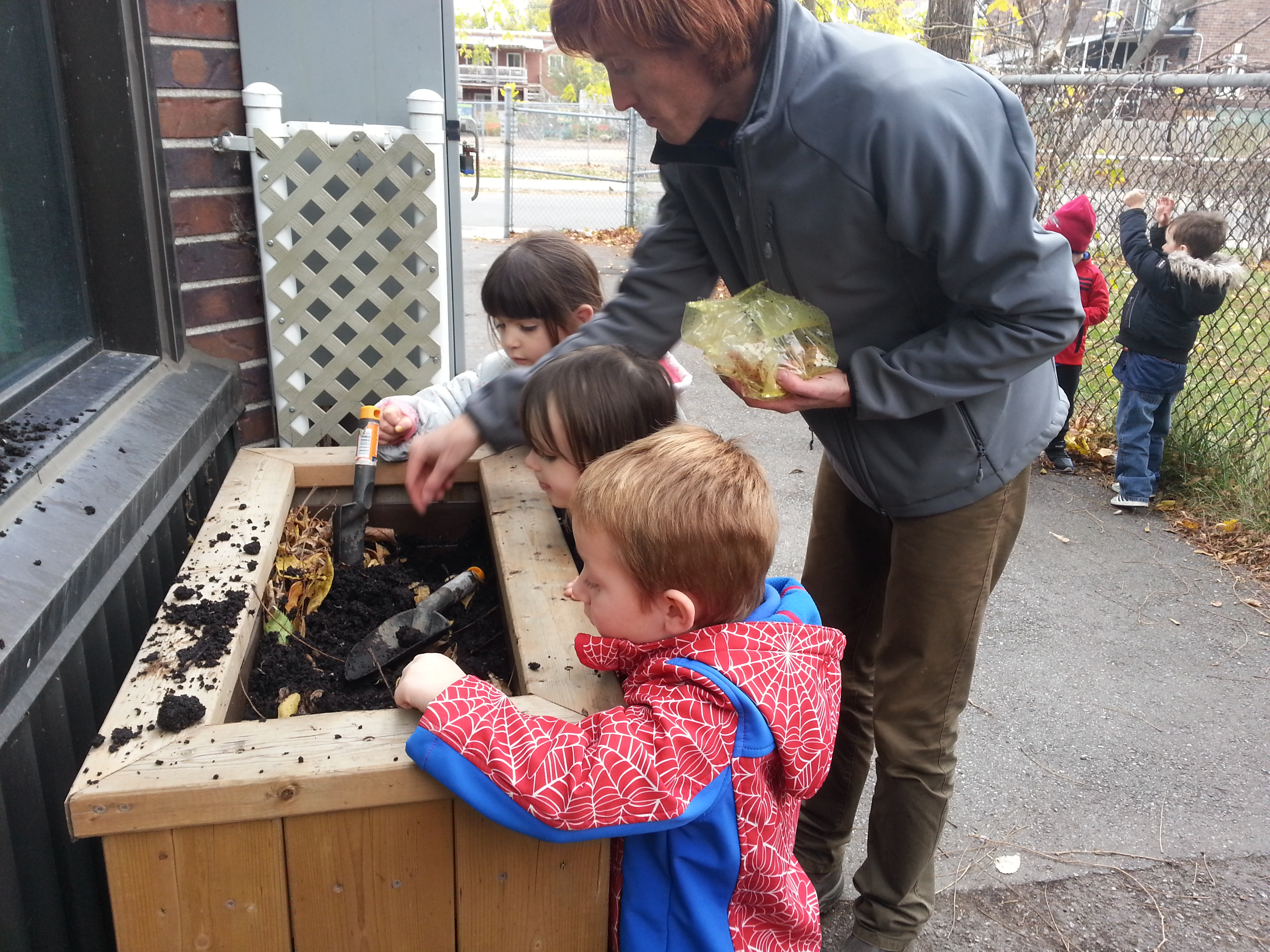
Montréal, Québec
What inspires me is the first hand experiences that students get when they grow a plant from seed then harvest it to eat. They take on the responsibility to grow that plant and care for it, to then pick or pull it out and eat it. These lessons last a life time and they want to do more.
Photo Credit: Ryan Oxley
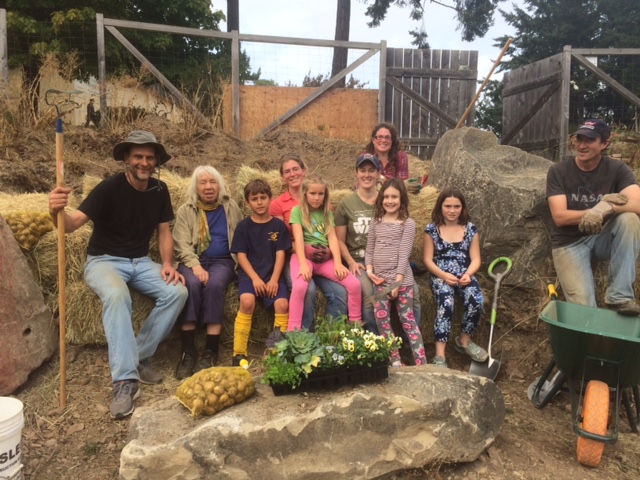
Salt Spring Island,British Columbia
J’ai une garderie sur une fermette et kiosque pour produits locaux et cuisine de transformation de nos produits. J’adore apprendre aux enfants à jardiner et cuisiner et prendre soin de nos animaux.
Crédit Photo : Salt Spring Elementary
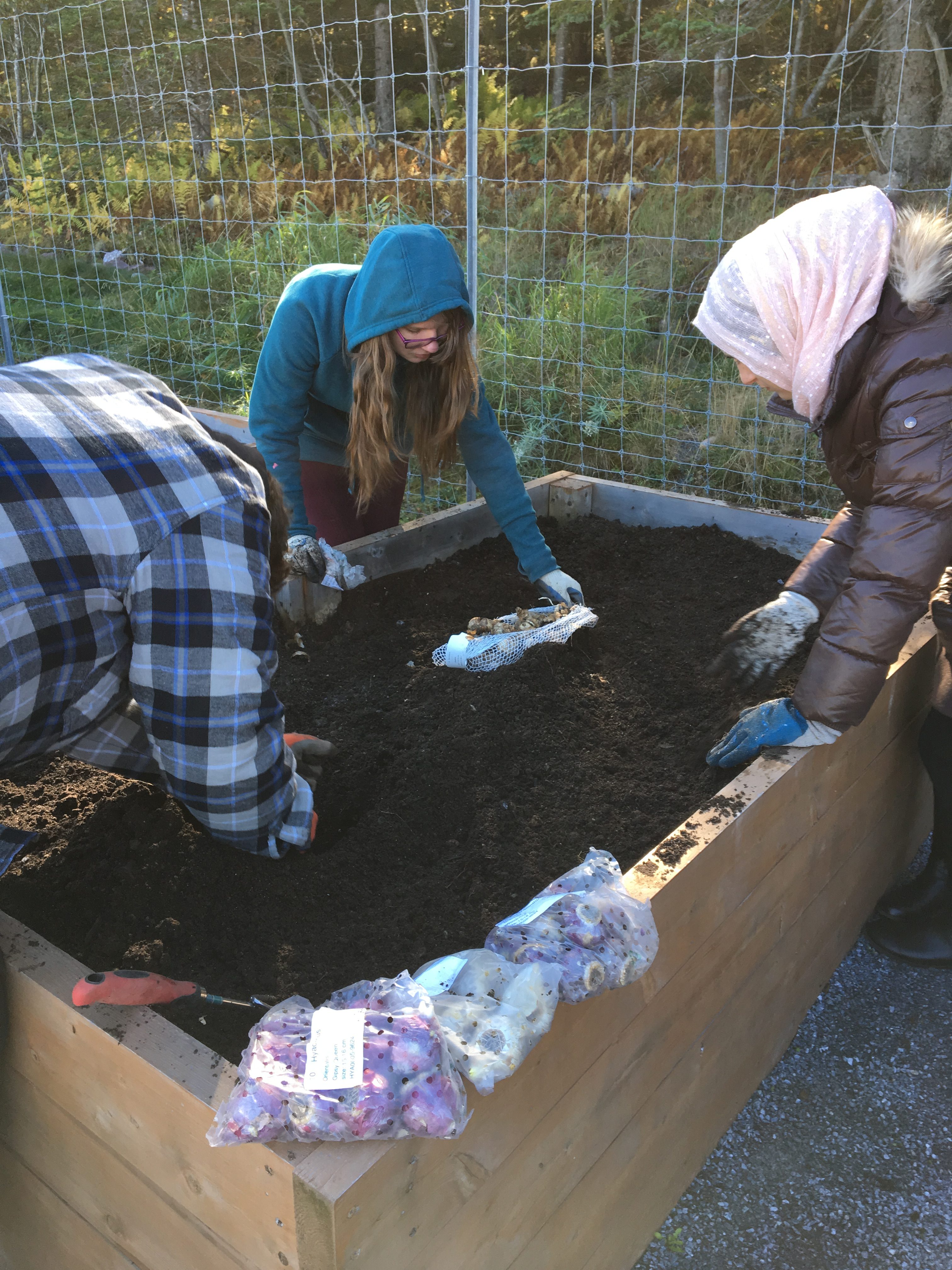
Saint John, Nouveau-Brunswick
Nous croyons fortement dans l’apprentissage essentiel à la vie. Le jardinage démontre aux élèves d’où vient la nourriture que l’on consomme régulièrement. De plus, nos élèves apprennent le travail investi afin de préparer et maintenir nos jardins. Finalement, avec tout le travail investi, les élèves sont fiers de leur récolte et sont enthusiame envers la découverte de nouveaux fruits/ légumes/ pousses/ fines herbes.
Crédit Photo : Mélissa Beaupré-Perron

Hampton, New Brunswick
We are in the process of completing the construction of a greenhouse at Hampton High School and we would like to grow food to be used in the cafeteria and in the culinary tech classes.
Photo Credit: Chris Rendell

Windsor, Ontario
Depuis quelques années, notre école s’engage à promouvoir la bonne alimentation et l’appui des fermes locales. Située dans le sud-ouest de la province, notre région est riche en exploitation agricole et croissance de serres hydroponiques. Nous encourageons nos familles de prendre avantage des produits cultivés localement et nous tentons de faire vivre des expériences enrichissantes à nos élèves en lien avec la bonne nutrition.
Crédit Photo : photo prise par un membre du personnel de l’école

Courtenay, British Columbia
We were super excited to attend the Farm to Cafeteria Canada conference in Vancouver Oct 12-13 to share, learn and be inspired! Our Salad Bar program launches in January and we are busy getting everything ready for Isfeld’s Farm to School Feast!
Photo Credit: Lauren Lan

Longueuil, Québec
Le jardin scolaire est un lieu de partage de connaissances et d’expérimentations concrètes pour les gens de tous les âges. C’est une activité rassembleuse qui nous ramène à l’essentiel et à la base de la vie, c’est-à-dire l’alimentation et la nature.
Crédit Photo : Suzanne Morin
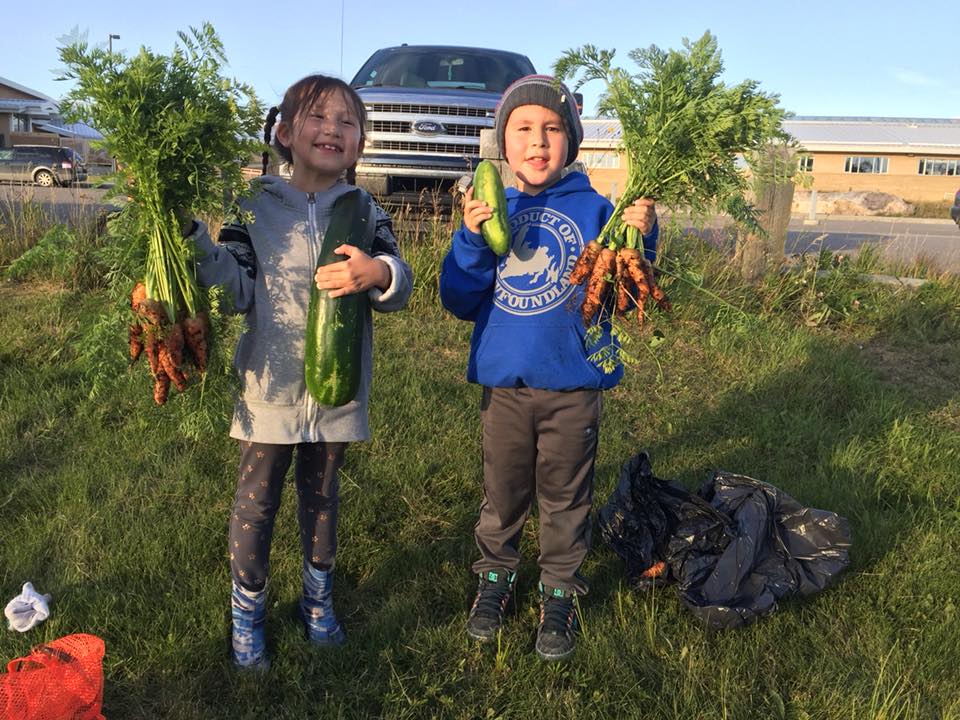
Norway House, Manitoba
I am excited to work with our school volunteers and students again next year. We were so excited be able to supply our cafeteria and culinary arts program with locally grown produce to feed our students. To watch people eat “garden fresh” as opposed to “storebought fresh”, and recognize the difference was inspiring. We are also inspired by seeing students and community members become excited about reviving gardening in our community. Many community members even reached out and asked for help and advice in starting their own small gardens. Russell Pierce happily obliged. At season’s end it was amazing to see the amount of people come out to help harvest, and to hear the excitement buzzing throughout the crowd. We want to share that experience with everyone again!
Photo Credit: Trish Meekis
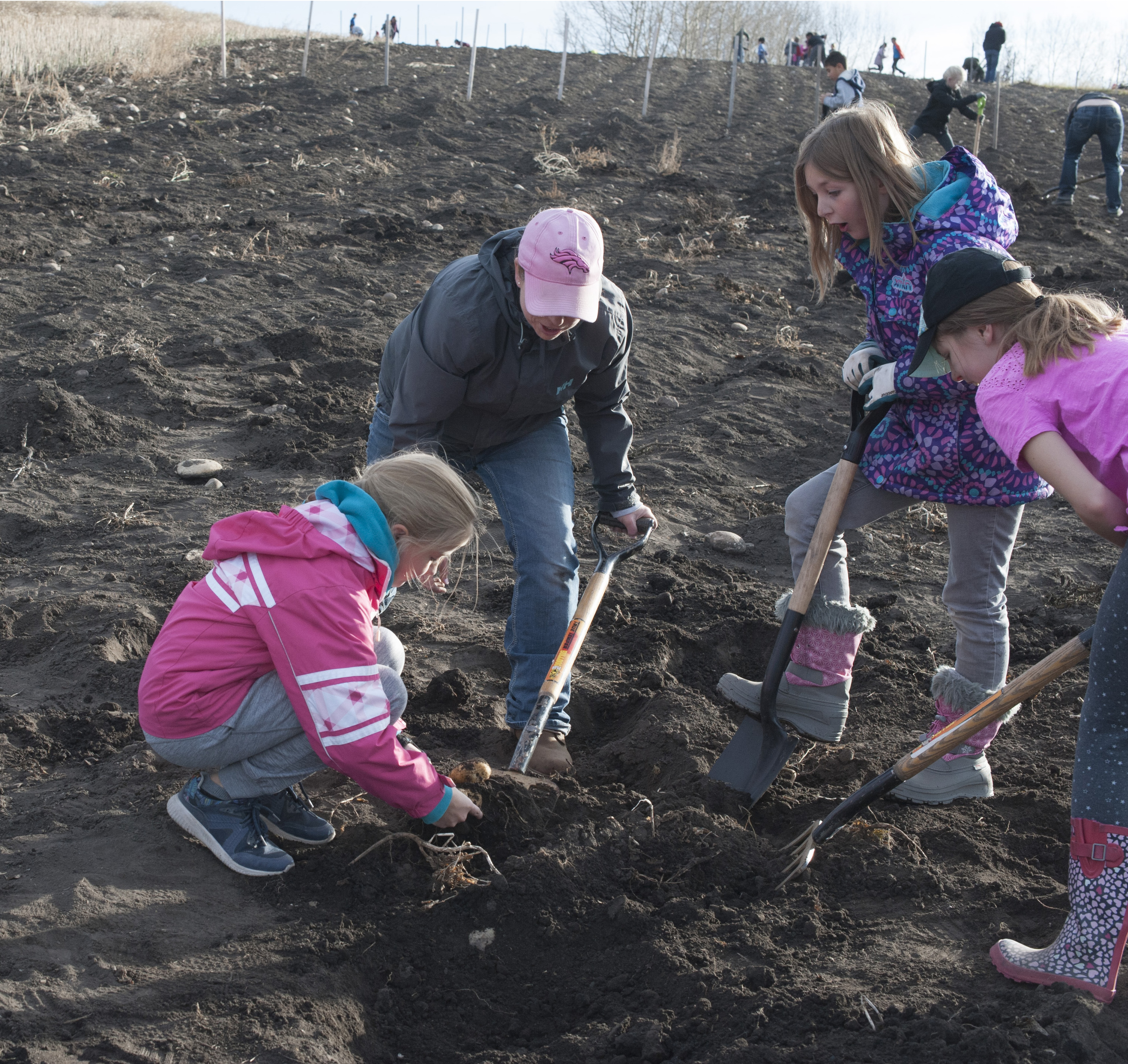
Airdrie, Alberta
Students at Nose Creek Elementary, are over-the-top with excitement about Project G.R.O.W. (Gardens Replenish Our World)! Once students enter Grade Four, the opportunity to plant and harvest an acre of potatoes and donate them to the community food bank, is a goal in which they take great pride. Of course, getting to prepare and eat a potato meal at school they’ve grown first hand is a huge thrill as well!
Photo Credit: Photographer, Wendy Dixon
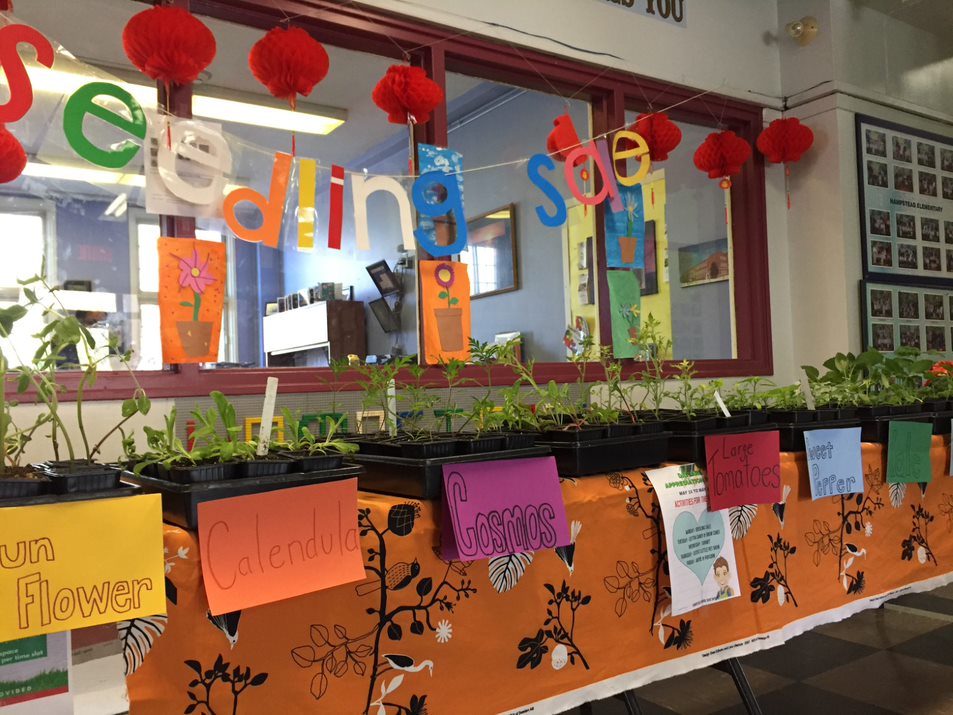
Hampstead, Quebec
Learning about gardening through hands on learning helps students build long lasting relationships in the environment.
Photo Credit: Ryan Oxley
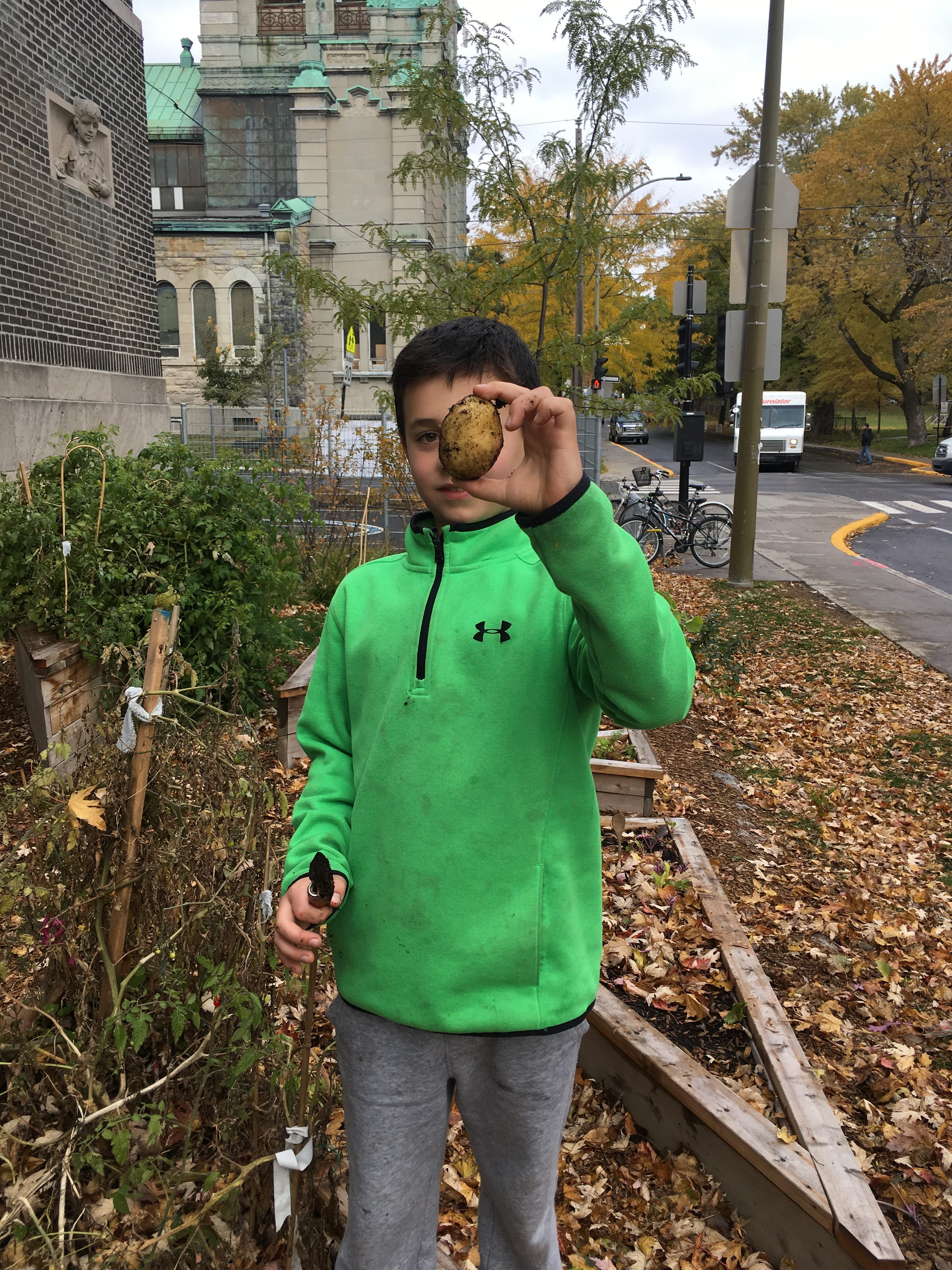
Montréal, Québec
Notre école est au coeur de Montréal et nos élèves ont très peu de contact avec l’agriculture. Nous sommes emballés par le nouveau jardin scolaire qui permet à nos petits urbains de se mettre les mains dans la terre et de planter leur semis, les faire grandir, les récolter et les déguster!
Crédit Photo : Charline Boulerice
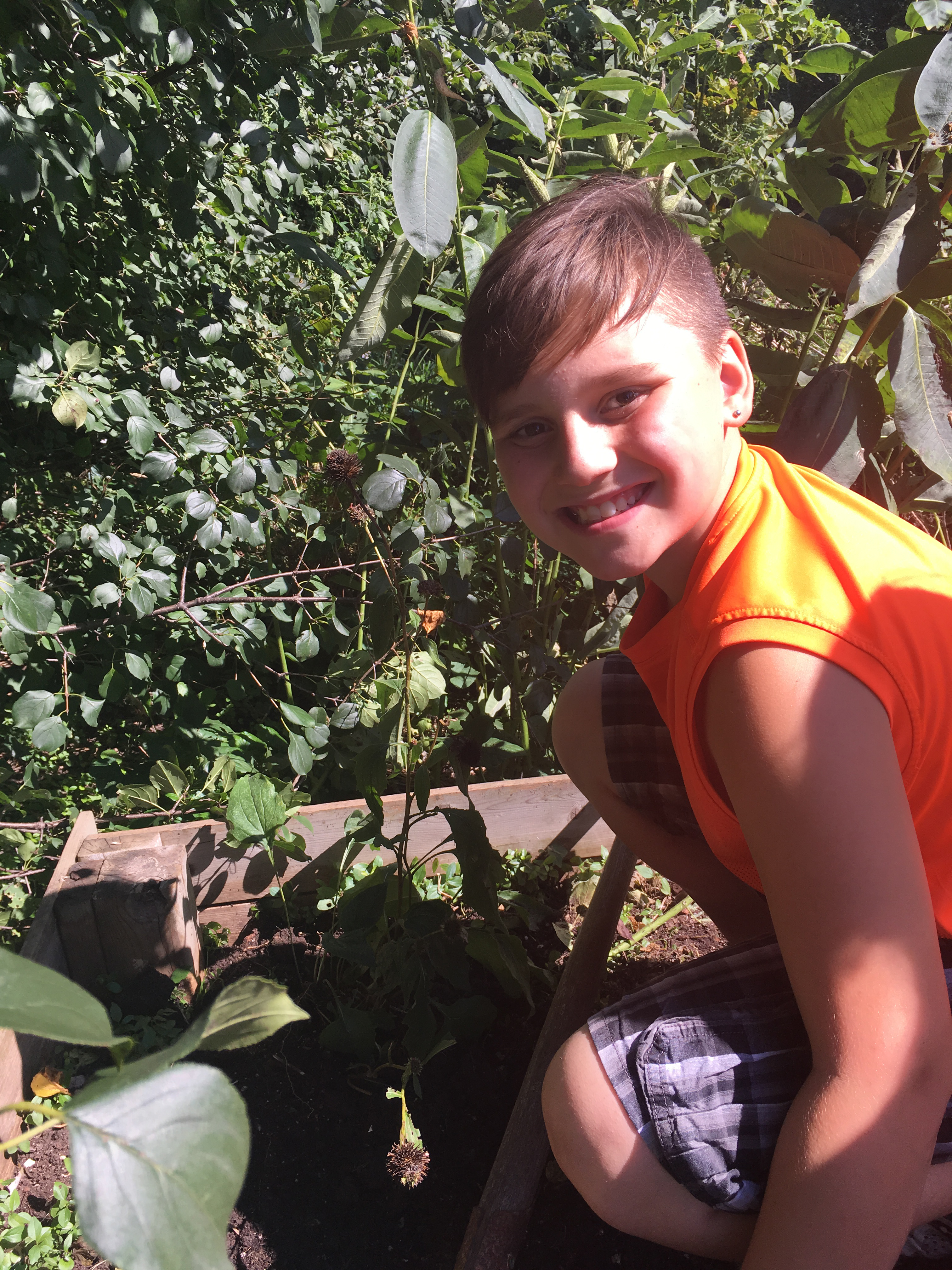
Oshawa, Ontario
I love when my students take the opportunity to sample local plants, to grow veggies at school, and to engage in sustainable local food projects! We are inspired by the idea that our school can transform our yard space into an orchard of fruit-bearing trees, and raised planters, to facilitate healthy eating!
Photo Credit: Adrian Hogendoorn
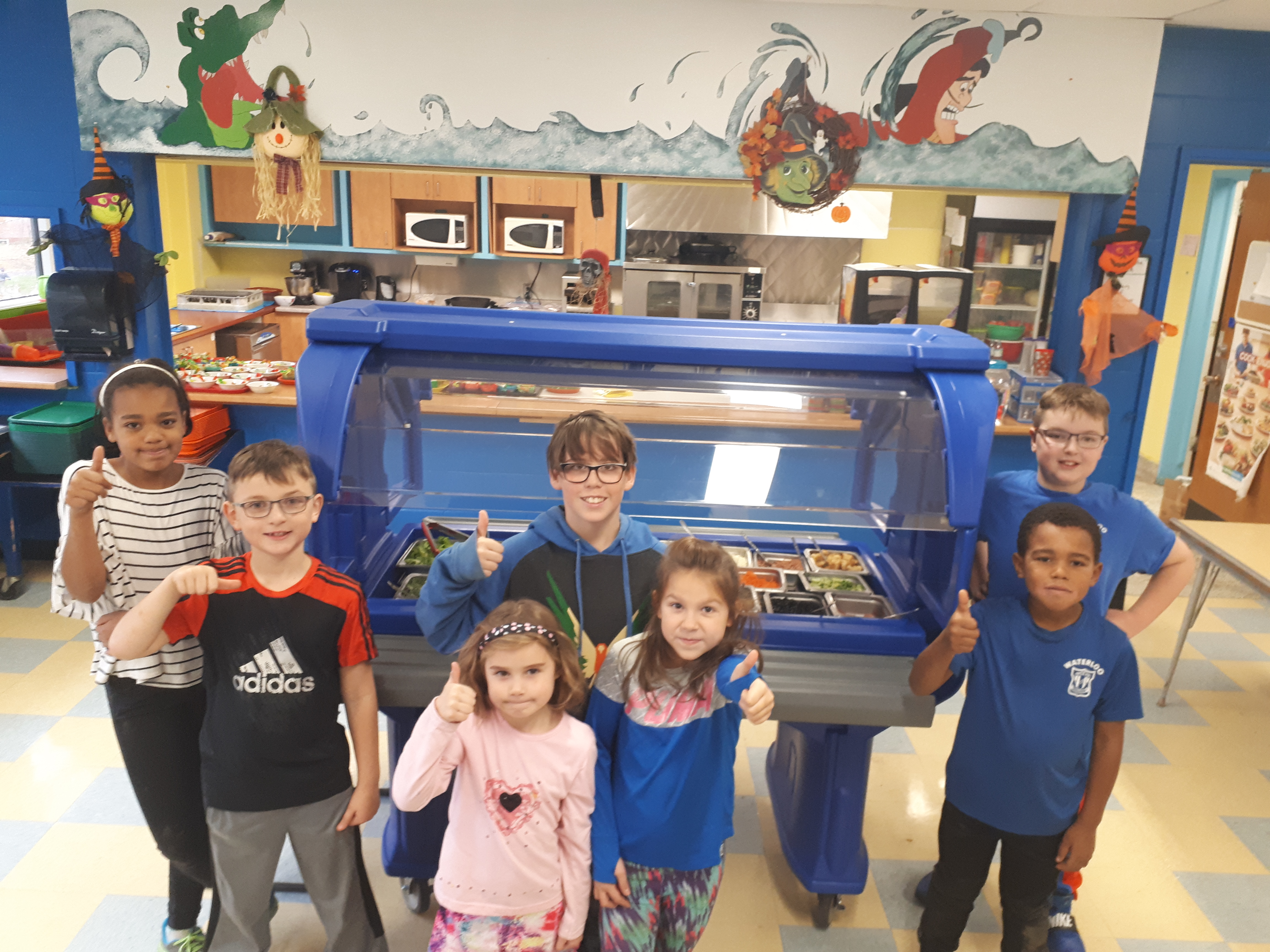
Waterloo, Quebec
Seeing kids enjoy eating fresh fruits and vegetables from our local producers.
Photo Credit: Jenny Wheeler
Multilingual WordPress with WPML